Equip yourself with experience and skills to conduct investigative reporting
It is known that currently, in addition to the Press Law, there are many specific Decrees and Circulars providing guidance on the protection of journalists. In particular, Decree 119/2020/ND-CP on administrative sanctions for violations in press and publishing activities clearly stipulates the level of penalties for acts of illegally obstructing press activities.
Specifically, acts of illegally obstructing the professional activities of journalists and reporters can be fined from 10,000,000 VND to 20,000,000 VND, acts of illegally seizing means and documents of journalistic activities of journalists and reporters can be fined from 20,000,000 VND to 30,000,000 VND... acts of threatening the lives of journalists and reporters that do not reach the level of criminal prosecution can be fined from 40,000,000 VND to 60,000,000 VND.
In addition, the authorities can also apply one or several remedial measures when handling violations such as forcing an apology; forcing the return of illegally seized vehicles and documents...
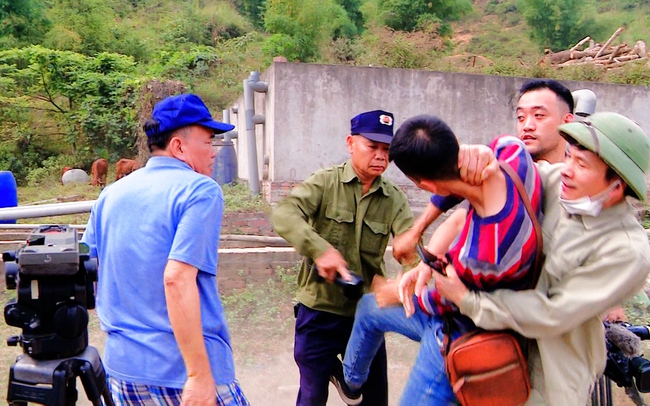
The incident of a reporter from NTNN/Dan Viet Newspaper being assaulted in Da Bac ( Hoa Binh ). Photo: Danviet.vn
However, reality shows that if the implementation of legal regulations on the protection of journalists is not strictly implemented by the authorities, it will create a bad precedent. After each incident of journalists being threatened or assaulted, if the handling is not thorough and there is no investigation by the authorities, it will greatly affect the participation of journalists in preventing negativity, protecting the right, protecting the truth, protecting justice, etc.
Mr. Luu Binh Nhuong, National Assembly Delegate, Deputy Head of the People's Aspirations Committee (Standing Committee of the National Assembly) said: When journalists go to work, especially with assigned public duties, "ordered" by the State, they should also be considered as people performing public duties. Regardless of whether the person performing that duty is a civil servant or not, they can still be considered as people performing public duties.
Mr. Luu Binh Nhuong emphasized: "We need to recognize that the problem is resisting people on duty, not resisting civil servants. I think that lawmakers, jurists and scientists also need to unify these definitions and gradually perfect the law based on practice. Therefore, with cases of assaulting reporters and journalists while they are working, with assigned tasks, it is necessary to consider it as resisting people on duty."
In fact, there have been many cases of threats and assaults against journalists and the Vietnam Journalists Association has promptly responded, issuing documents requesting competent authorities to handle the situation. In many cases, the Vietnam Journalists Association has also urgently requested that authorities take measures to protect the lives and health of journalists and reporters during their work, to avoid the subjects continuing to threaten, terrorize, and intimidate reporters, causing panic and seriously affecting the lives and activities of journalists.
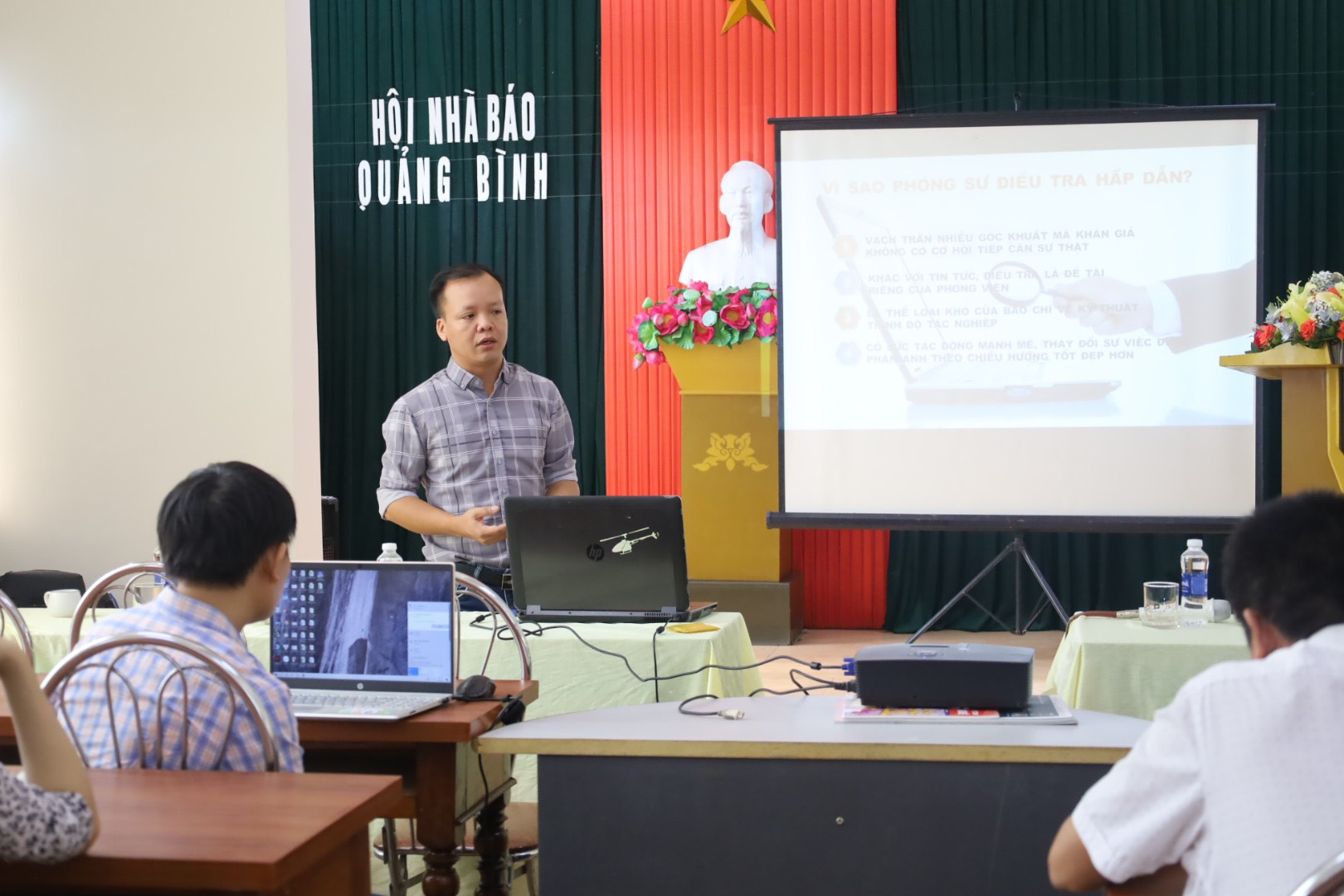
The Center for Journalism Training (Vietnam Journalists Association) in collaboration with the Quang Binh Provincial Journalists Association organized a training course on investigative reporting skills.
Investigative and negative reporters are always struggling with their jobs. They spend a lot of effort searching for and exploiting topics, even taking big risks. They are always working hard to pursue difficult investigative topics, exposing negative and shady cases, but many journalists are still not truly protected.
Among the myriad of difficulties and challenges that investigative and negative reporters may face, the Vietnam Journalists Association also regularly maintains the provision of experience and skills in conducting investigative reports. This includes organizing training courses on investigative reporting skills, and many courses have been held to guide journalists in implementing technical means applied in the process of conducting investigative reports.
Each of these training courses has helped to guide reporters in finding topics and how to carry out investigative topics, how to interview and exploit information about characters; role-playing skills and dealing with dangerous situations; legal risks in the process of conducting investigative reports... These training courses have helped journalists and reporters confidently approach and conduct reports against negativity, protect justice and reason to ensure social justice.
Need to calculate the level of risk to avoid
Negative issues such as drug trafficking, smuggling, deforestation, environmental pollution, etc. always arise with complex and unpredictable problems. Law-breaking businesses always put profit first.
In addition, the area often takes place in remote, mountainous areas, where the government does not fully cover or is lax in management. Investigative journalists are required to record images of negative issues, clearly demonstrating the existence and violations of agencies, organizations and individuals.
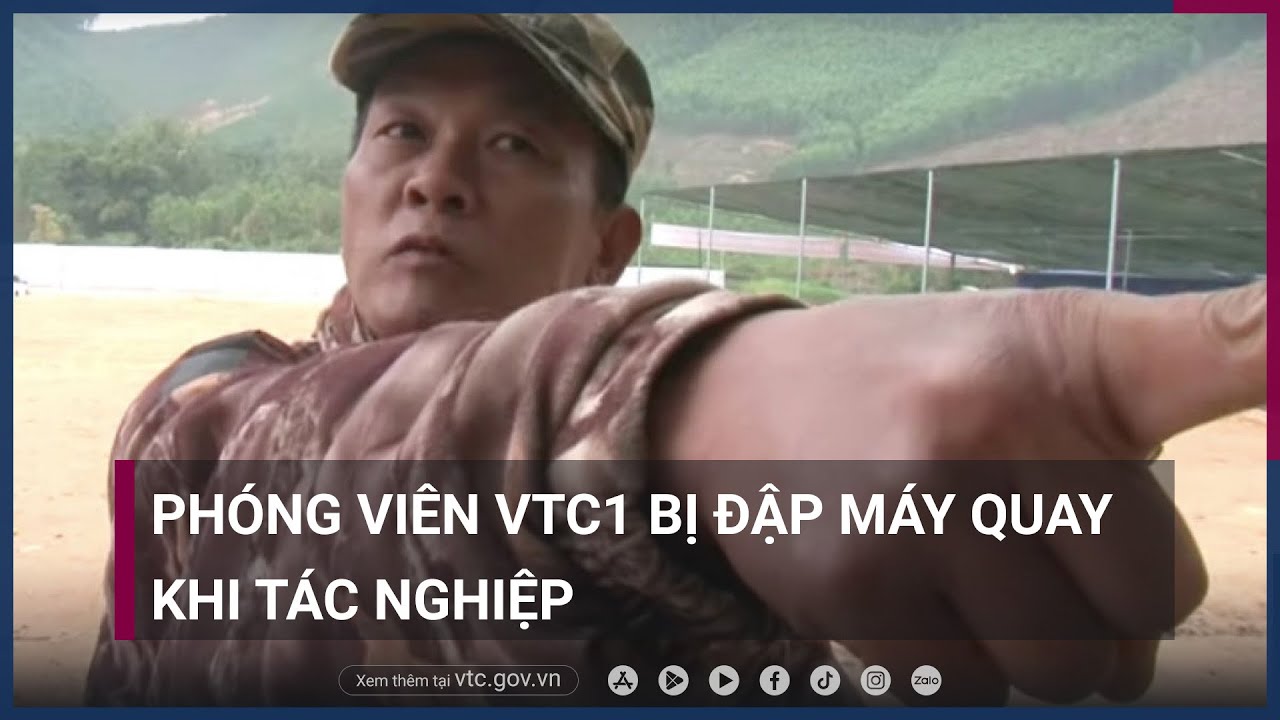
A group of reporters from the VTC1 General Political News Channel, VTC Digital Television Station, were working in Dong Hy District, Thai Nguyen Province when they were suddenly attacked by a group of people who cursed and broke a camera. Photo: VTC1
On the other hand, if a journalist investigating negative issues is developing a topic and contacts specialized authorities or local authorities, it is very likely that the topic being developed will be exposed, causing the whole forest to shake, and it will be impossible to "hunt" for clear and objective evidence, when the subjects temporarily withdraw or intentionally conceal and cover up negative information.
Talking to reporters of the Journalist and Public Opinion newspaper, journalist Toan Thu - VTC Digital Television Station said: "There are individuals and organizations who consider their violations as normal, routine, systematic, and not temporary. No one monitors this, no one touches it. The violating establishments have specific addresses and legal status. They are not included in local state management. Investigative reporters must have visual information, and in addition, they need solid documents collected from many sources. To compare, to prove with the authorities about the violations, to avoid blaming and denying."
However, when individuals or organizations discover that their actions are being exposed by the press and are about to be reported in the newspaper, strong reactions will occur. Not only threats, they are ready to smash recording devices, phones, and video recording devices to avoid saving evidence.
Many situations arise, so for each journalist, when working, it is necessary to imagine situations that can lead to incidents and unfortunate situations. Technical equipment is very useful in collecting evidence for an investigation. The skillful use of modern equipment will make investigative journalism more convincing.
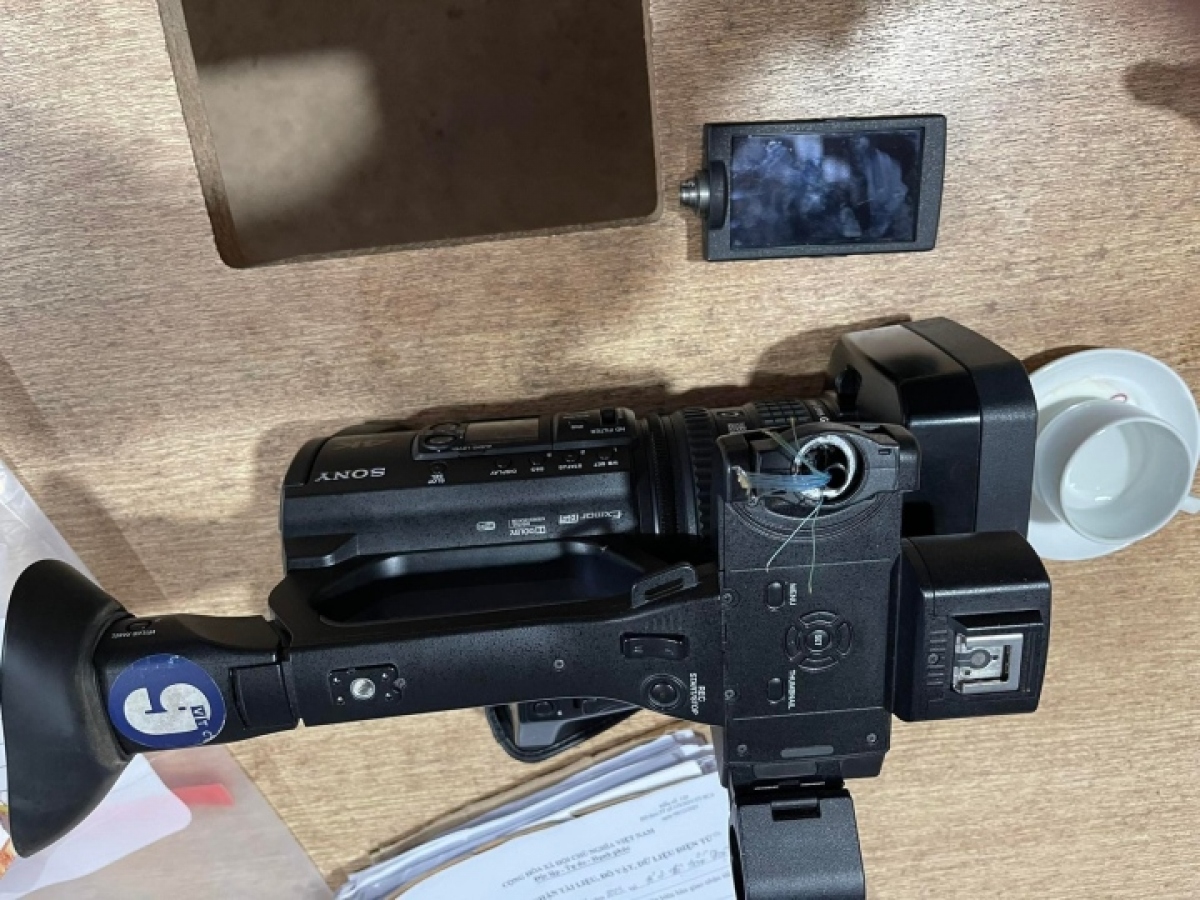
VTC1 reporter was cursed at and had his camera smashed while working in Thai Nguyen.
Sharing about solutions to protect journalists in the fight against corruption, Mr. Luu Binh Nhuong said: Journalists are first and foremost citizens, they must protect themselves first, protect themselves during their activities when unforeseen factors may occur. Self-protection does not mean waiting for risks to come, prevention here must be number one, we need to calculate the highest levels of risk. Calculate where the risks will come from to prevent them.
“In addition, each journalist has the right to ask his/her organization, his/her newspaper, the Editorial Board, and the support of other journalists to speak up in support. In particular, each journalist always pays attention to the role of the Vietnam Journalists Association. In many cases, the Vietnam Journalists Association has issued timely documents and instructions to protect its members. This has supported each reporter in their work,” Mr. Luu Binh Nhuong shared.
Source


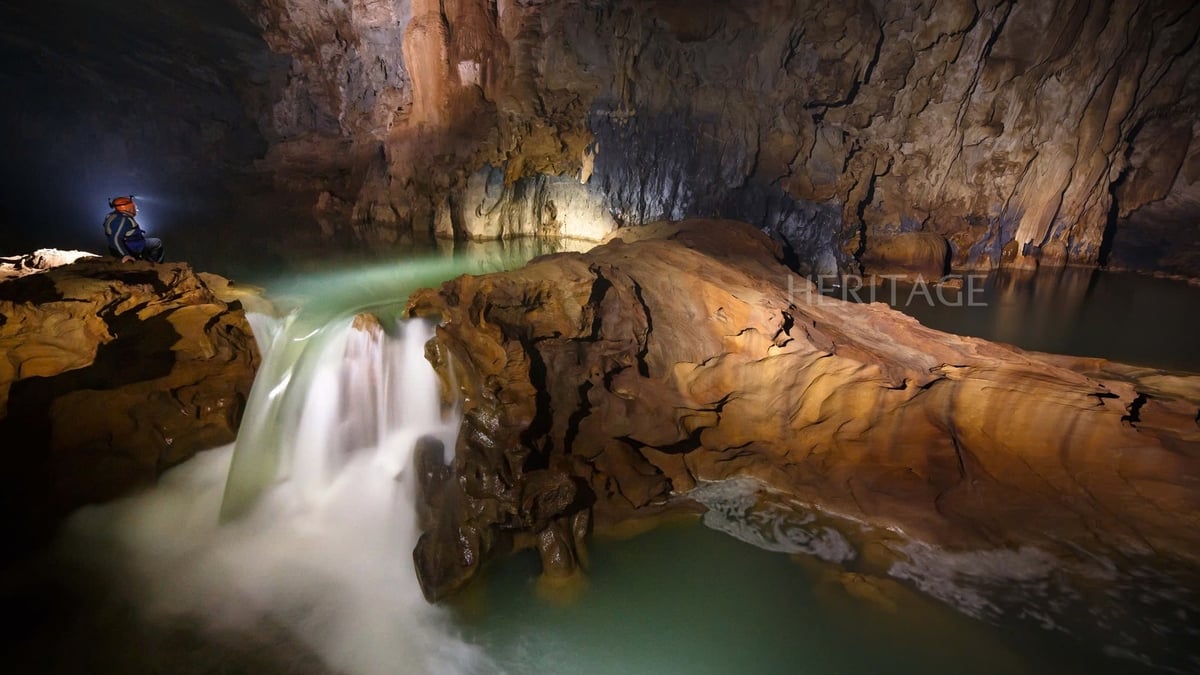

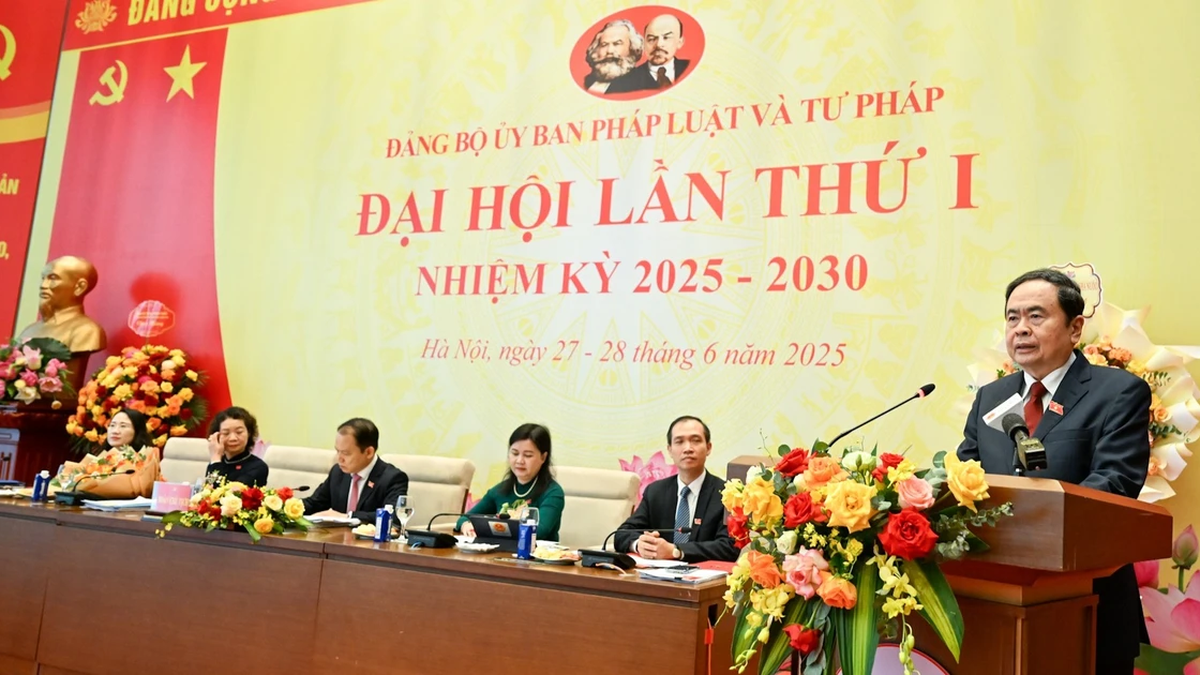
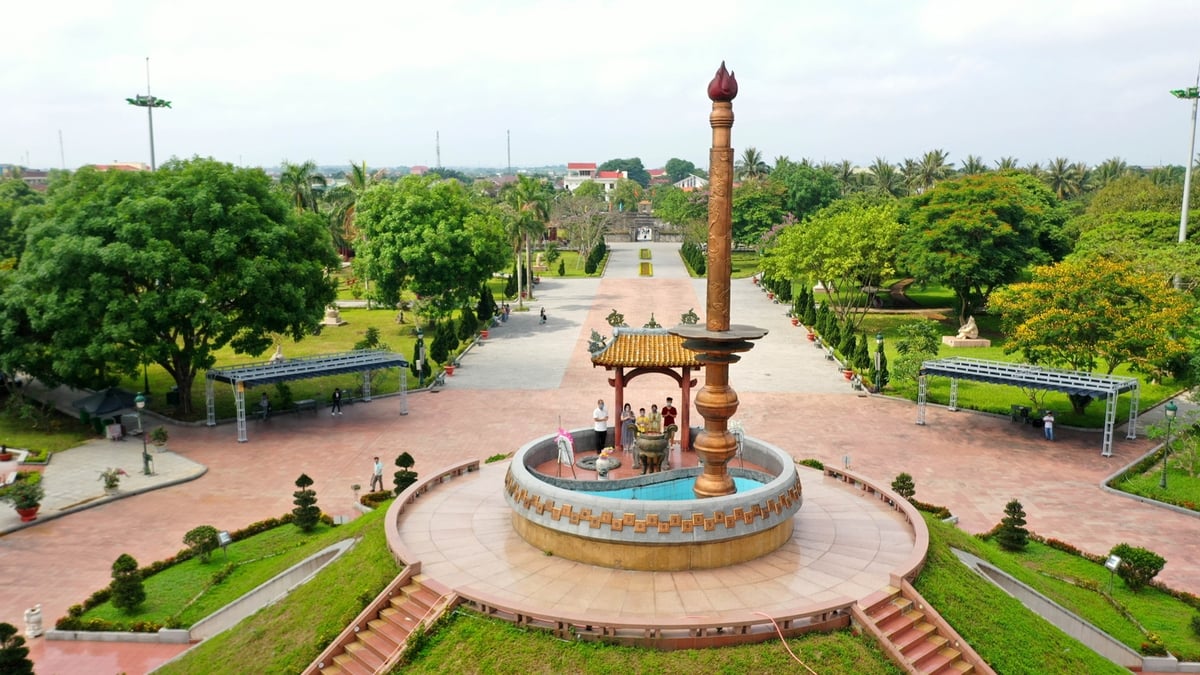

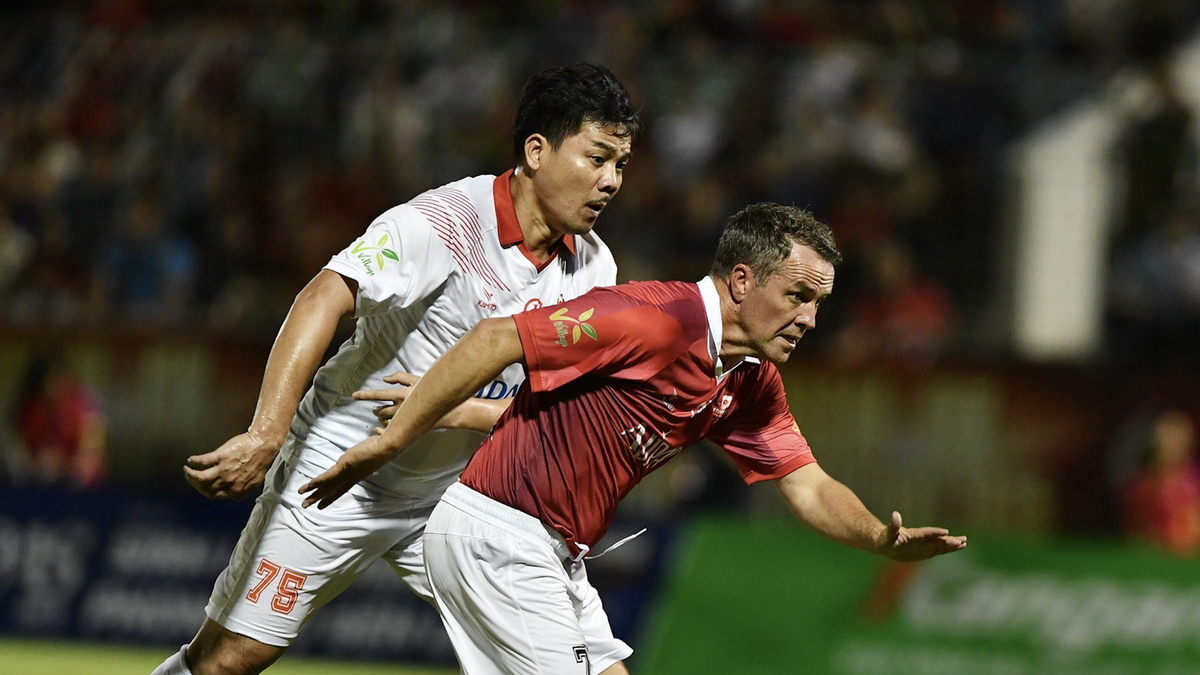










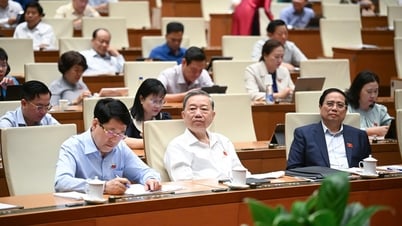












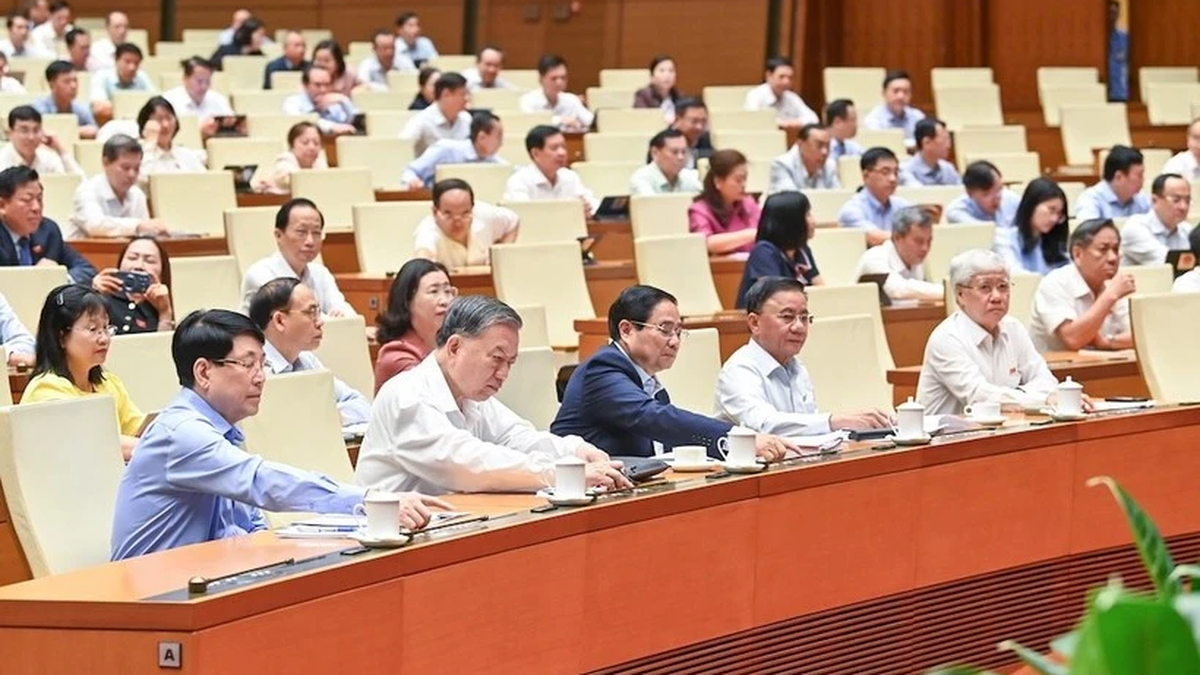
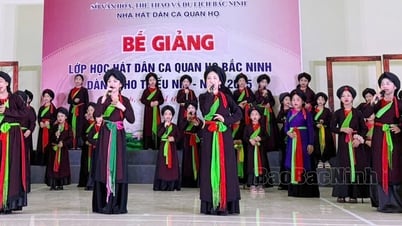



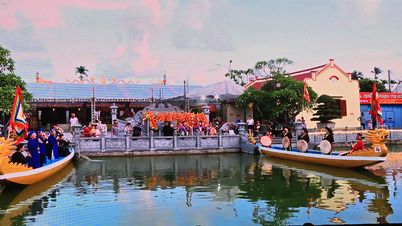

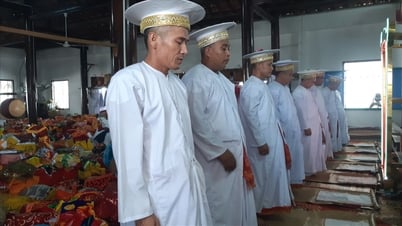

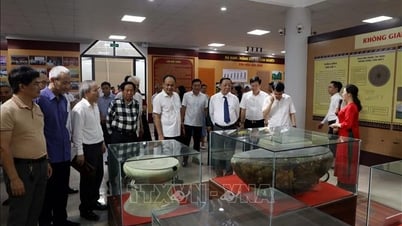
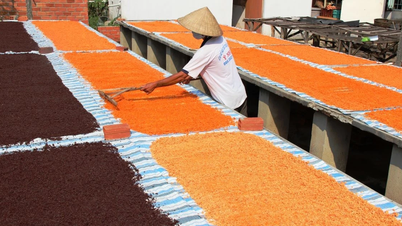

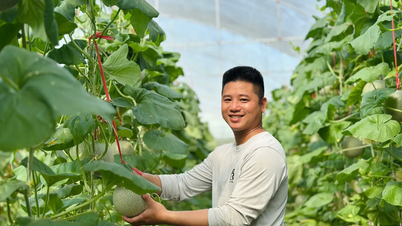

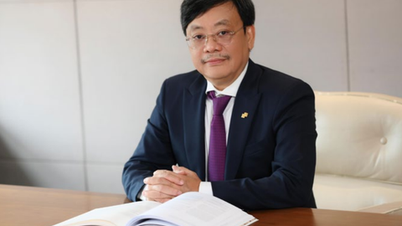
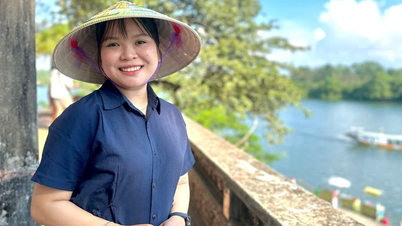

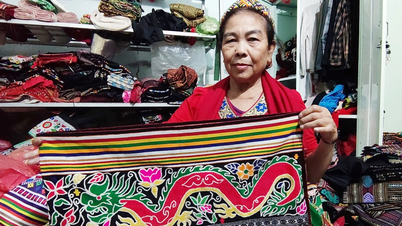





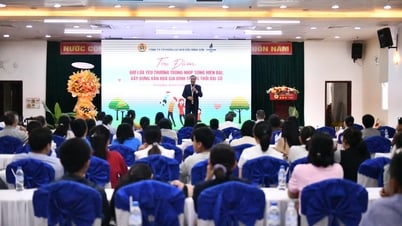





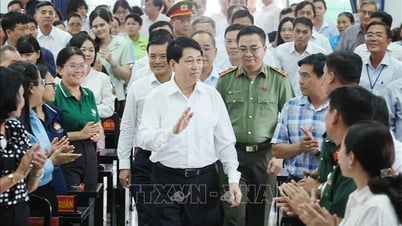
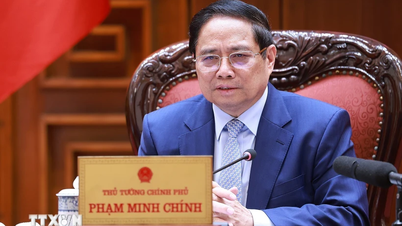

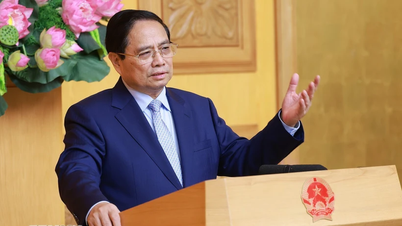
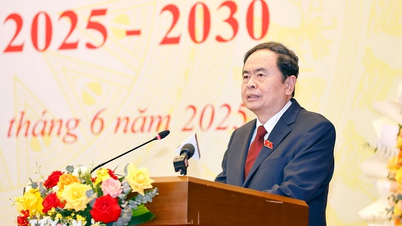



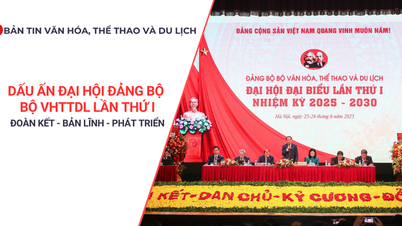


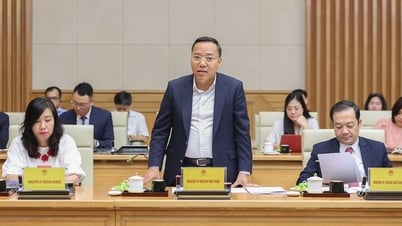


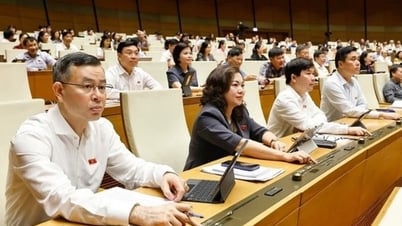
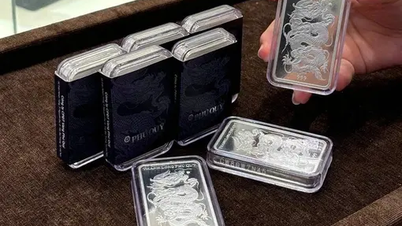

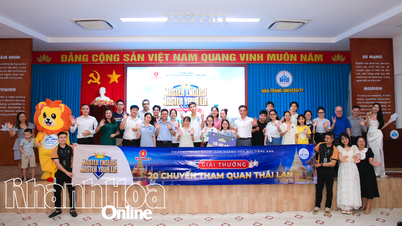

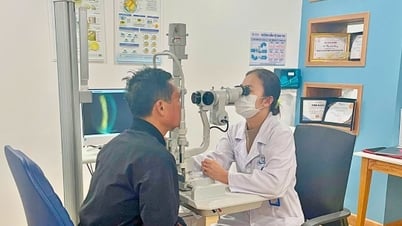

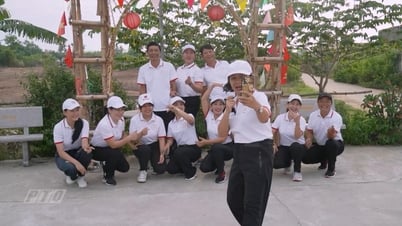

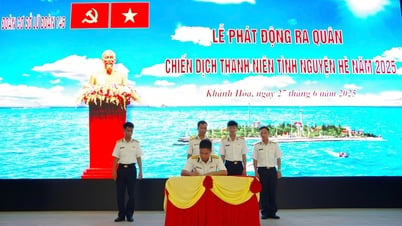
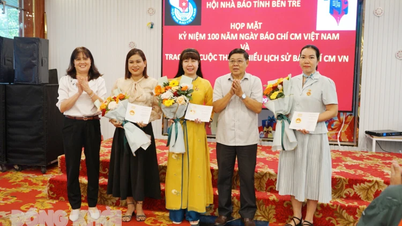














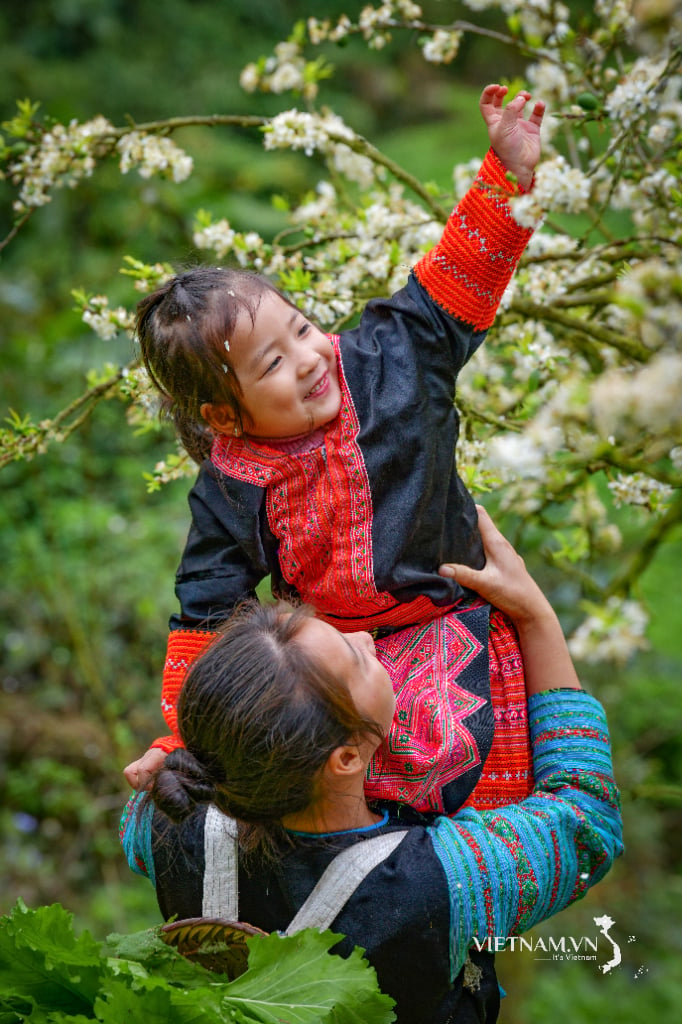
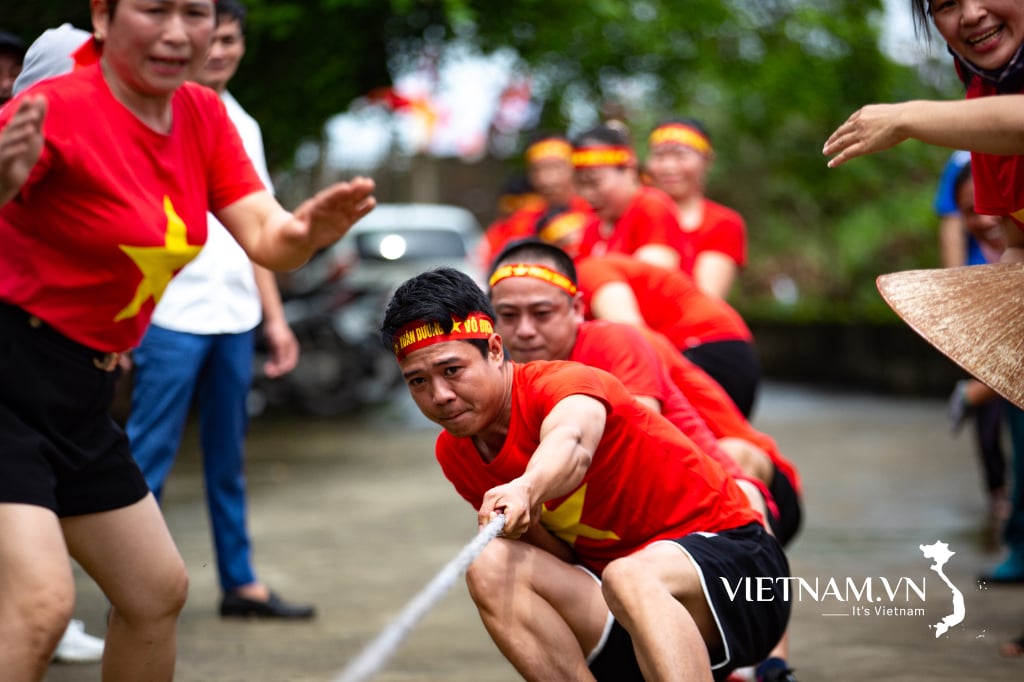
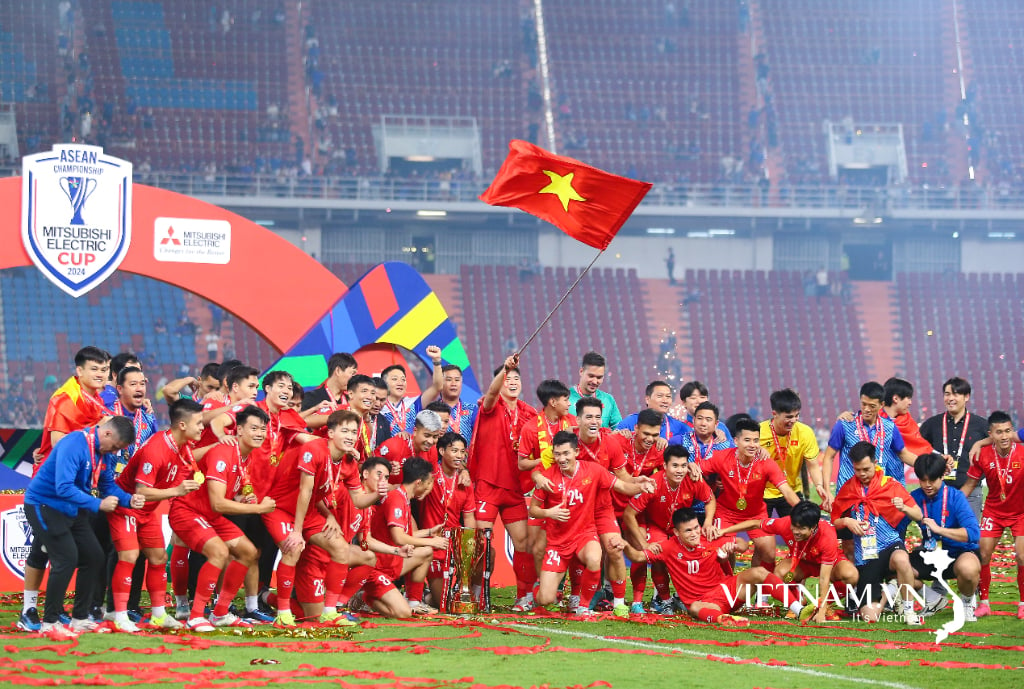
Comment (0)